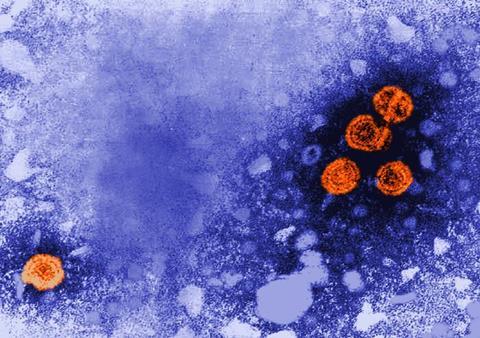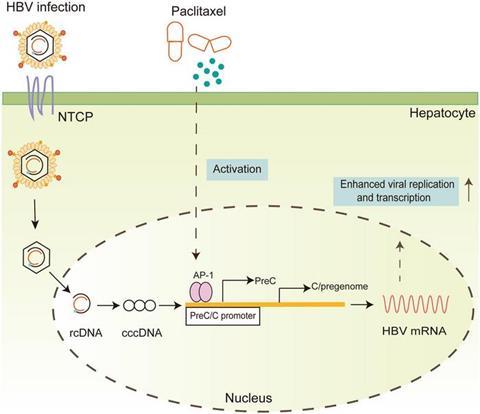Hepatitis B virus (HBV) reactivation is commonly observed in individuals with chronic HBV infection undergoing antineoplastic drug therapy. Paclitaxel (PTX) treatment has been identified as a potential trigger for HBV reactivation. This study aimed to uncover the mechanisms of PTX-induced HBV reactivation in vitro and in vivo, which may inform new strategies for HBV antiviral treatment.

The impact of PTX on HBV replication was assessed through various methods including enzyme-linked immunosorbent assay, dual-luciferase reporter assay, quantitative real-time PCR, chromatin immunoprecipitation, and immunohistochemical staining. Transcriptome sequencing and 16S rRNA sequencing were employed to assess alterations in the transcriptome and microbial diversity in PTX-treated HBV transgenic mice.
Study findings
PTX enhanced the levels of HBV 3.5-kb mRNA, HBV DNA, HBeAg, and HBsAg both in vitro and in vivo. PTX also promoted the activity of the HBV core promoter and transcription factor AP-1. Inhibition of AP-1 gene expression markedly suppressed PTX-induced HBV reactivation. Transcriptome sequencing revealed that PTX activated the immune-related signaling networks such as IL-17, NF-κB, and MAPK signaling pathways, with the pivotal common key molecule being AP-1. The 16S rRNA sequencing revealed that PTX induced dysbiosis of gut microbiota.
In this study, published in Journal of Clinical and Translational Hepatology, PTX treatment was found to directly promote HBV replication and transcription, leading to HBV reactivation in HBV stable expression cell models, HBV natural infection cell models, and HBV transgenic mouse models. Further molecular analysis indicated that PTX may enhance HBV replication and transcription through the promotion of HBV core promoter activity mediated by the transcription factor AP-1.

Furthermore, PTX treatment was found to induce immune system dysregulation and dysbiosis of the gut microbiota, which may potentially contribute to the induction of HBV reactivation. However, the authors say it is important to acknowledge that the experimental models may not fully replicate the complex dynamics of HBV infection and reactivation observed in clinical patients. Therefore, more comprehensive and in-depth research is required to provide references for the development of prevention and treatment strategies for clinical HBV reactivation.







No comments yet